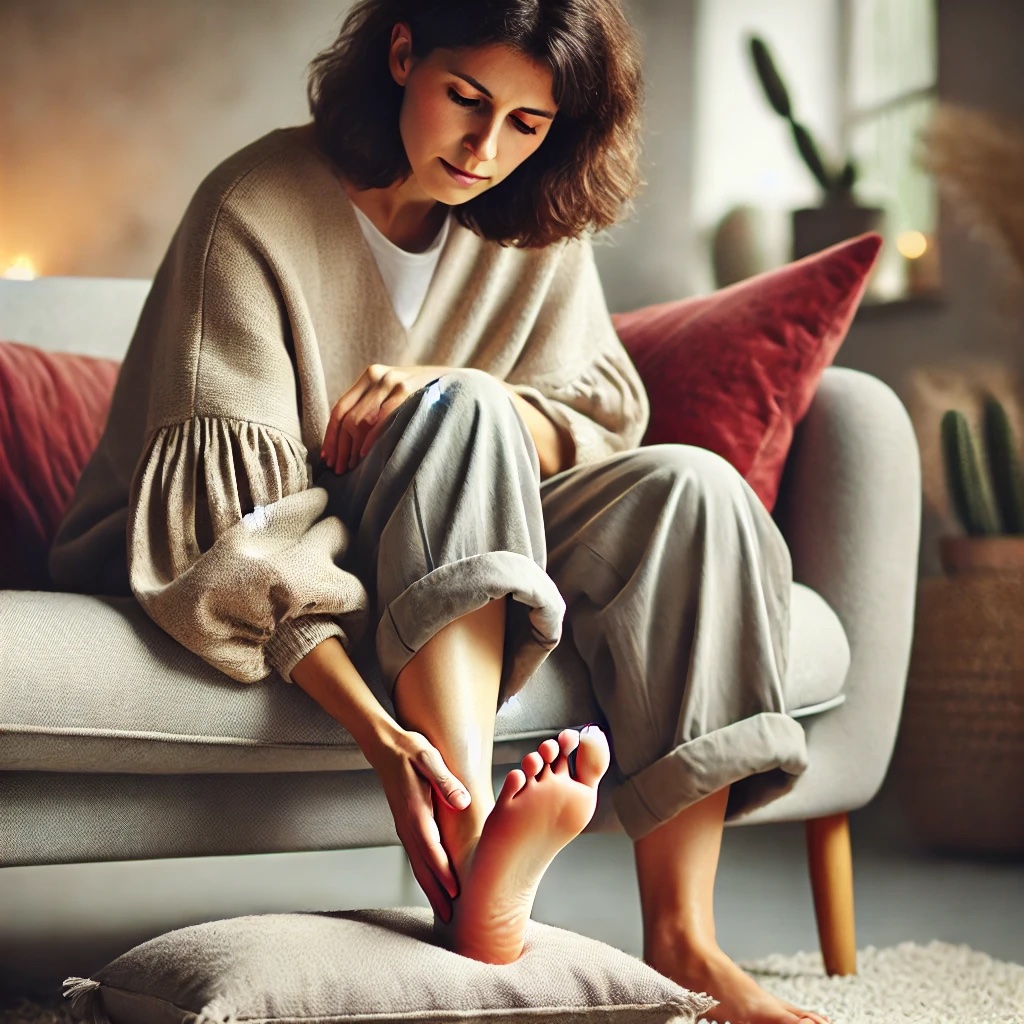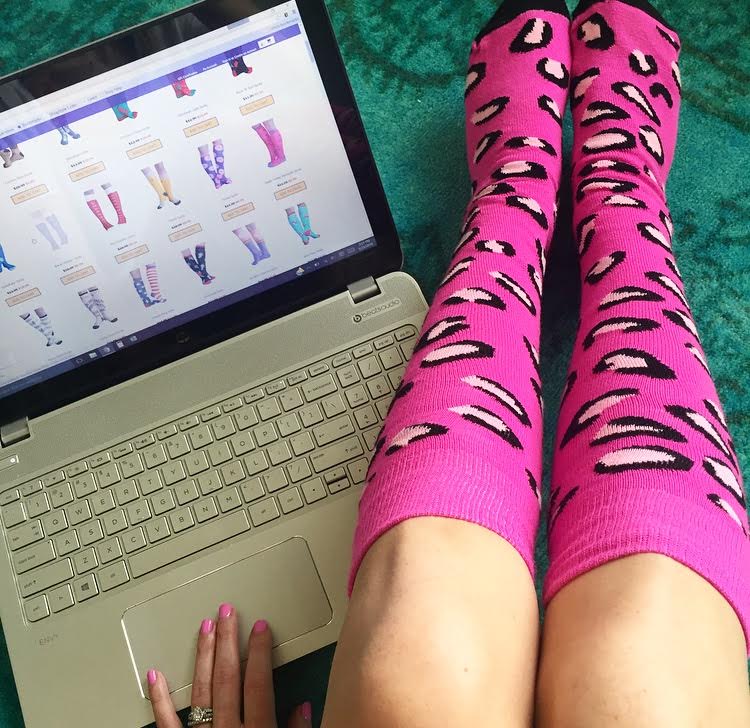Choosing the Best Socks for Sensitive Feet
If you have sensitive feet, finding the right socks can make a world of difference. Sensitive feet can be caused by various factors and can lead to discomfort and pain if not properly addressed. In this article, we will explore the importance of choosing the right socks and provide you with tips on how to find the perfect pair for your sensitive feet.
Understanding Sensitive Feet
Before we delve into the world of socks, let's take a moment to understand what exactly sensitive feet are. Sensitive feet can be characterized by a heightened sensitivity to stimuli, such as touch, pressure, or temperature. Common causes of foot sensitivity include nerve damage, diabetes, neuropathy, and certain medical conditions. It is important to identify the root cause of your foot sensitivity to better address your specific needs.
When it comes to sensitive feet, it's not just about finding the right pair of socks. Understanding the causes and symptoms can help you navigate the world of foot care more effectively. Let's explore some of the key factors that contribute to foot sensitivity.
Causes of Foot Sensitivity

Foot sensitivity can be caused by a variety of factors. Nerve damage, whether due to injury or medical conditions such as diabetes, can result in heightened sensitivity. When the nerves in your feet are damaged, they may send abnormal signals to your brain, leading to sensations like tingling, burning, or numbness.
In addition to nerve damage, certain medical conditions, such as peripheral neuropathy or restless legs syndrome, can also contribute to foot sensitivity. Peripheral neuropathy is a condition that affects the nerves outside of the brain and spinal cord, often causing pain, tingling, or numbness in the extremities, including the feet. Restless legs syndrome, on the other hand, is a neurological disorder characterized by an irresistible urge to move the legs, often accompanied by uncomfortable sensations.
Identifying the underlying cause of your foot sensitivity is crucial in finding the right socks to alleviate discomfort. Consulting with a healthcare professional can help you determine the root cause and develop an appropriate treatment plan.
Symptoms of Sensitive Feet
Do you often experience tingling, burning, or numbness in your feet? Do everyday activities like walking or wearing shoes become painful? These are common symptoms associated with sensitive feet. The sensations experienced can vary from person to person, but they often interfere with daily life and overall comfort.
In addition to the physical discomfort, sensitive feet can also have a significant impact on your mental well-being. Constant pain or discomfort can lead to frustration, anxiety, and even depression. It's important to pay attention to these symptoms and seek appropriate solutions to alleviate your discomfort and prevent further complications.
Fortunately, there are various strategies and products available to help manage foot sensitivity. From specialized socks to foot massages and exercises, finding the right combination of treatments can make a significant difference in your quality of life.
Remember, sensitive feet are not something you have to endure alone. By understanding the causes and symptoms, you can take proactive steps towards finding relief and improving your overall foot health.
Importance of Choosing the Right Socks
Socks play a vital role in foot health, especially for individuals with sensitive feet. They act as a protective barrier between your feet and your shoes, preventing friction and reducing the risk of blisters, calluses, and other foot problems.
Role of Socks in Foot Health
Socks not only provide cushioning and support for your feet but also help regulate moisture and temperature. They can absorb sweat and prevent excessive moisture build-up, reducing the risk of fungal infections such as athlete's foot. Additionally, socks can help maintain proper circulation and prevent swelling.
When it comes to cushioning, socks with extra padding in the heel and ball of the foot can provide added comfort and shock absorption, particularly for individuals who engage in high-impact activities like running or jumping. These socks help distribute the pressure evenly across the foot, reducing the strain on specific areas and minimizing the risk of injuries.
Furthermore, socks made from moisture-wicking materials, such as merino wool or synthetic blends, are highly recommended for individuals with sweaty feet. These materials have the ability to pull moisture away from the skin and allow it to evaporate, keeping the feet dry and reducing the chances of bacterial or fungal growth.
Impact of Wrong Socks on Sensitive Feet
Wearing the wrong socks can exacerbate foot sensitivity and cause discomfort. Socks that are too tight can restrict blood flow and create pressure points, leading to pain and potentially worsening existing foot conditions. On the other hand, socks that do not provide adequate cushioning or support can increase friction and contribute to blisters and calluses.
For individuals with sensitive feet, it is important to choose socks with seamless toes to prevent irritation and rubbing. Seams can cause friction against the skin, leading to blisters or abrasions. Additionally, socks with a reinforced heel and toe can provide extra durability and protection in areas that are prone to wear and tear.
Another factor to consider when selecting socks for sensitive feet is the thickness. Some individuals may prefer thicker socks for added cushioning, while others may find thinner socks more comfortable. It is a matter of personal preference and finding the right balance between cushioning and breathability.
Lastly, individuals with foot conditions such as plantar fasciitis or arthritis may benefit from specialized socks that offer targeted support and compression. These socks can help alleviate pain, reduce inflammation, and provide extra stability to the affected areas.
Types of Socks for Sensitive Feet
When it comes to choosing socks for sensitive feet, it's essential to consider both the material and style of the socks. Let's explore the key factors to keep in mind.
Sensitive feet require extra care and attention when it comes to selecting the right socks. The wrong choice of material or style can lead to discomfort, irritation, and even pain. By understanding the material considerations and sock styles that cater to sensitive feet, you can ensure optimal comfort and support throughout the day.
Material Considerations
Opt for socks made from breathable, moisture-wicking materials such as cotton, bamboo, or merino wool. These materials help keep your feet dry and comfortable by absorbing and evaporating sweat. Cotton is a popular choice for its softness and breathability, while bamboo offers natural antimicrobial properties that help prevent odor. Merino wool, on the other hand, provides excellent insulation and temperature regulation, making it suitable for both warm and cold climates.
It's important to avoid synthetic materials such as polyester or nylon, as they can trap moisture and lead to bacterial growth. These materials can create a breeding ground for fungi and bacteria, which can cause foot odor and infections. By opting for natural fibers, you can ensure better air circulation and reduce the risk of foot-related issues.
Sock Styles and Their Benefits
When selecting sock styles, consider your specific foot needs. Different styles offer various benefits that cater to sensitive feet.
If you have sensitive soles or arches, look for socks with extra padding in those areas to provide additional cushioning and support. The extra padding helps absorb impact and reduce pressure, making walking or standing for long periods more comfortable. Additionally, socks with arch support can help alleviate discomfort caused by flat feet or high arches.
Consider socks with seamless toes to prevent irritation and friction. The absence of seams eliminates any potential rubbing or digging into the skin, reducing the risk of blisters and abrasions. Seamless toe socks are particularly beneficial for individuals with sensitive skin or conditions like diabetes, where foot health is of utmost importance.
Compression socks can also be beneficial for individuals with poor circulation or swelling. These socks apply gentle pressure to the legs and feet, promoting blood flow and reducing swelling. Compression socks are commonly used by athletes, travelers, and individuals with medical conditions such as varicose veins or lymphedema.
By carefully considering the material and style of socks, you can provide your sensitive feet with the comfort and support they need. Remember to prioritize breathability, moisture-wicking properties, and additional features like padding or seamless toes. With the right socks, you can go about your day with confidence, knowing that your feet are well taken care of.
Key Features to Look for in Socks
Now that you know the basics, let's dive into the key features you should look for when shopping for socks for sensitive feet.
When it comes to finding the perfect pair of socks, there are a few important factors to consider. These features can make a significant difference in the overall comfort and support that the socks provide. So, before you make your purchase, take a moment to consider the following:
Padding and Support
One of the most crucial features to look for in socks is adequate padding and support. Socks with cushioned soles or targeted padding in specific areas can provide extra comfort and support where it's needed most. Whether you're dealing with sensitive feet or simply want to enhance your overall foot health, finding socks with proper padding can make a world of difference.
Additionally, arch support is another essential aspect to consider. Socks with built-in arch support can help alleviate discomfort and prevent the arches from collapsing, reducing strain on the feet. This is particularly beneficial for individuals with flat feet or high arches, as it helps maintain proper foot alignment and reduces the risk of developing foot-related issues.
Breathability and Moisture Control
Another key feature to prioritize when shopping for socks is breathability and moisture control. It's essential to choose socks made from breathable materials that promote airflow and prevent excessive moisture buildup. This is especially important for individuals with sensitive feet, as excessive moisture can lead to fungal infections and unpleasant odors.
Look for socks made from moisture-wicking fabrics such as merino wool or synthetic blends. These materials are designed to pull moisture away from the skin, keeping your feet dry and comfortable throughout the day. Additionally, socks with mesh panels or ventilation zones can further enhance breathability, allowing for better air circulation and reducing the risk of overheating.
Furthermore, consider socks with anti-microbial properties. These socks are treated with special agents that inhibit the growth of bacteria and fungi, helping to prevent foot odor and infections.
How to Properly Fit Socks
Properly fitting socks are essential for ensuring comfort and reducing foot sensitivity. Here are some tips to help you find the perfect fit:
Sock Sizes and How to Measure
Take accurate measurements to determine your sock size. Consult a sizing chart or follow the specific brand's instructions to ensure you select the right size. Avoid socks that are too tight or too loose, as they can impact circulation and exacerbate foot sensitivity.
Ensuring Comfort and Avoiding Pressure Points
When trying on socks, pay attention to any potential pressure points or areas of discomfort. Ensure that the socks do not bunch up or slide around inside your shoes, as this can lead to irritation and blisters. If necessary, consider trying different brands or styles until you find the perfect fit.
By understanding the needs of your sensitive feet and selecting the right socks, you can significantly improve your comfort levels and overall foot health. Remember to prioritize materials, styles, and features that provide the necessary support, cushioning, and breathability for your unique feet. With the right socks, you can confidently stride through each day, free from foot discomfort and pain.



